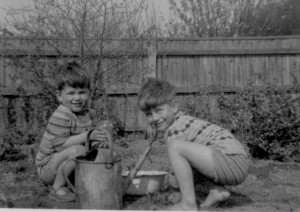The theory is that someone or other makes up the song – the words, the tune – and sings it at a gathering. Others then copy it, adapt it. Sing it in other gatherings and there you are.
But really, nobody knows. Iona and Peter Opie attempted to follow the spreading of topical juvenile songs. Like the parody of Davy Crockett, for example (Born on a table top in Tennessee). This particular song had spread nationwide in the course of a week, and they couldn't explain it. Children who knew the song also knew the author – someone one of their friends knew. The oral tradition has ways of its own.
As far as folk traditions are concerned though, most of us have no connection to this oral tradition. So we have to look at collections. Almost from the time of printing there have been collections. Printers will print anything they can sell, or anything they're paid to. The author (if he is known) will usually not be consulted, or even mentioned – so much easier to avoid tedious copyright claims that way.
Ballads and broadsides (topical ballads) have been printed since the 16th century inEngland. The Bodleian library has 30,000. In the 19th century – in the wake of the Romantic predeliction for nature and rustic pastimes – there was an
interest in this sort of thing among the general public. For British folk ballads the turning point was Francis Child, who collected what came to be known as the Child Ballads. Nothing to do with Childe Roland. Bertrand Bronson collected tunes. In the 20th century Cecil Sharp collected folk lore and traditions, and popularized them, for schools for example. Sometimes toning down the content – some of the ballads were thought too juicy for tender ears: unfortunately the same sort of thing happened with the music. The tunes were arranged for piano, and unconventional rhythms and tonalities were often forcibly jammed into the classical template of ¾ time and major and minor modes.
Since the invention of the microphone and the tape-recorder, collections have been made of the originals. Alan Lomax was one of the first workers in this field – but since then a whole army of dedicated people have been out there documenting folk traditions before they disappear.
I have heard some of these recordings. But mostly they dribble through to me at fifth or sixth remove.
